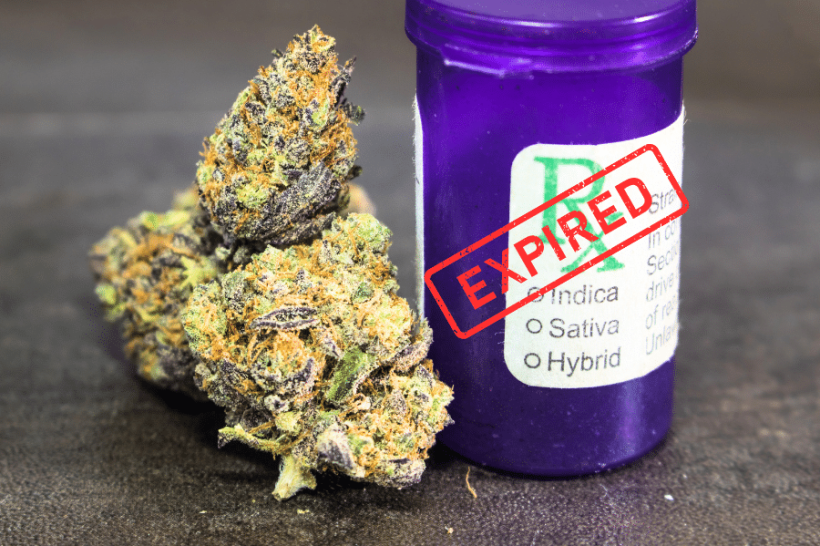Shedding Light on What Medical Cannabis Can Heal: an Extensive Analysis of Its Therapeutic Residences
In current years, there has actually been a growing rate of interest in the healing potential of medical cannabis. While unscientific proof abounds, a complete evaluation of the clinical information regarding the effectiveness of medical marijuana in treating these problems is necessitated.
Chronic Pain Administration
Chronic pain monitoring continues to be a crucial aspect of treatment, demanding a thorough strategy for reliable therapy. Recently, medical cannabis has actually become a prospective therapeutic option for people dealing with chronic discomfort problems. The endocannabinoid system, which plays a critical function in pain modulation, has actually been targeted by cannabis-based therapies to improve and reduce signs and symptoms lifestyle for individuals.

In addition, medical marijuana uses a promising choice for clients that experience unbearable negative effects from standard discomfort medicines. Its ability to attend to discomfort with a various system makes it a beneficial addition to the toolbox of treatments readily available for chronic discomfort monitoring.
Epilepsy Treatment Possible
Medical marijuana has actually shown encouraging potential in the treatment of epilepsy, supplying a novel healing approach for handling seizures in people. Epilepsy is a neurological disorder defined by persistent seizures, influencing people of any ages. Typical treatments for epilepsy include antiepileptic medicines, yet these medications may not work for all patients and can have considerable side results.
Study on the use of medical cannabis for epilepsy has actually disclosed encouraging outcomes. Cannabidiol (CBD), a non-psychoactive substance found in cannabis, has been especially highlighted for its anticonvulsant properties. Studies have shown that CBD can decrease the frequency and intensity of seizures in people with treatment-resistant kinds of epilepsy, such as Dravet disorder and Lennox-Gastaut disorder.
Furthermore, the FDA has approved a CBD-based medication, Epidiolex, for the treatment of seizures associated with these severe forms of epilepsy. This milestone underscores the growing recognition of clinical marijuana as a beneficial healing alternative for taking care of epilepsy and gives wish for people that have actually not responded well to conventional therapies.
Nausea Or Vomiting Alleviation Perks
The relief of queasiness through using cannabis has actually been significantly identified for its healing advantages in different medical conditions. Nausea or vomiting and throwing up are typical signs experienced by clients undergoing radiation treatment, those with stomach conditions, and individuals with chronic discomfort conditions. Medical marijuana, with its energetic compounds such as THC and CBD, has actually revealed guarantee in providing alleviation from queasiness.

Additionally, medical marijuana uses a natural alternative for individuals that do not respond well to traditional anti-nausea drugs or who experience severe side results from these medications. Patients undertaking chemotherapy, in particular, have actually reported significant renovations in their high quality of life when making use of marijuana to take care of nausea or vomiting. As research study around remains to grow, clinical cannabis is significantly being thought about as an important check that alternative for queasiness alleviation in different clinical settings.
Anxiousness Reduction Impacts
Studies have actually shown the capacity of marijuana in reducing anxiousness symptoms with its interaction with the endocannabinoid system. The endocannabinoid system plays a critical role in managing feelings, including anxiousness, by maintaining homeostasis in the body. Cannabinoids in cannabis, such as THC and CBD, interact with the endocannabinoid receptors in the mind, especially the CB1 and CB2 receptors, to modulate anxiety-related actions.

Patients with problems like generalised anxiousness condition (GAD), social stress and anxiety disorder, and trauma (PTSD) might benefit from the anxiolytic residential or commercial properties of cannabis (Medical Cannabis Clinic). However, additional research study is required to establish optimal dosages, delivery methods, and long-term effects on anxiety management.
Prospective for Swelling Control
With its recognized anti-inflammatory residential properties, cannabis has shown promise in possibly regulating swelling within the body. Inflammation is the body's natural response to injury or infection, yet when it comes to be chronic, it can contribute to various conditions such as joint inflammation, inflammatory bowel disease, and also heart problem. Research study suggests that the cannabinoids found in marijuana, such as THC and CBD, can assist minimize and regulate the immune feedback swelling.
Studies have actually shown that marijuana can engage with the endocannabinoid system, which plays a vital function in regulating swelling. By targeting the cannabinoid receptors, cannabis substances can modulate the immune response, causing a reduction in swelling levels. This makes marijuana a prospective prospect for handling inflammatory problems where standard treatments have actually fallen brief.
Furthermore, cannabis-derived items like CBD oil have acquired popularity for their anti-inflammatory homes, with lots of people utilizing them as a natural solution for problems related to swelling. While more research urgent care appointment near me study is required to completely recognize the systems behind marijuana's anti-inflammatory effects, present searchings for show encouraging results for the prospective usage of medical cannabis in regulating inflammation.
Final Thought
Finally, medical marijuana has revealed encouraging therapeutic buildings in managing persistent discomfort, dealing with epilepsy, eliminating nausea, decreasing anxiousness, and controlling inflammation. Its prospective advantages in numerous clinical problems highlight the importance of additional research study and expedition right into its medical use. The evidence suggests that medical cannabis might be a useful choice therapy option for patients seeking remedy for a variety of problems and signs.
In current years, clinical marijuana has actually arised as a prospective restorative alternative for people enduring from persistent discomfort problems.Clinical marijuana has shown appealing potential in the treatment of epilepsy, offering a novel healing strategy for handling seizures in individuals. As research study in this area continues to grow, medical marijuana is increasingly being considered as a valuable option for nausea or vomiting alleviation in numerous medical settings.
In conclusion, clinical marijuana has shown promising healing properties in managing persistent pain, treating epilepsy, relieving nausea or vomiting, lowering stress and anxiety, and managing inflammation. The proof suggests that clinical marijuana could be a valuable choice treatment option for people looking for relief from an array of signs and conditions.